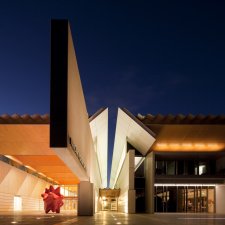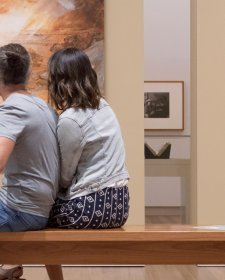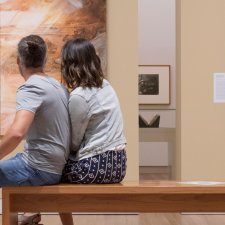Frederick Burnaby (1842–1885) is here portrayed as a confident young army officer, lounging on a sofa, cigarette in hand, in his uniform as a captain in the 3rd Household Cavalry. The informal presentation contrasts with the conventional full-length standing or mounted military portrait. However, the prominent inclusion of a map centred on India provides a stark indication of the military’s role in exerting British imperial interests during this period, including the brutal suppression of resistance movements.
Burnaby had a gift for languages and a penchant for travel and adventure, which he wrote about in his bestselling books A Ride to Khiva (1876) and On Horseback through Asia Minor (1877). A towering figure, he was reputed to be the strongest man in the British army, and was said to have once carried two ponies, one under each arm.
National Portrait Gallery, London
Purchased, 1933
© National Portrait Gallery, London



Visit us, learn with us, support us or work with us! Here’s a range of information about planning your visit, our history and more!



We depend on your support to keep creating our programs, exhibitions, publications and building the amazing portrait collection!



Information on location, accessibility and amenities.